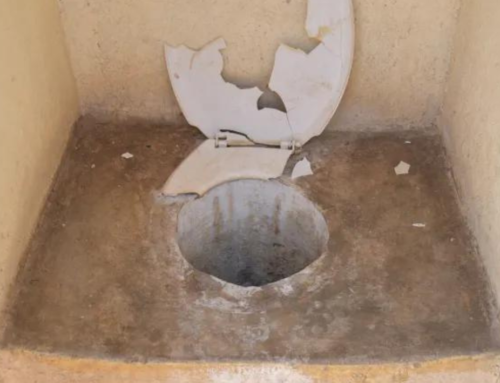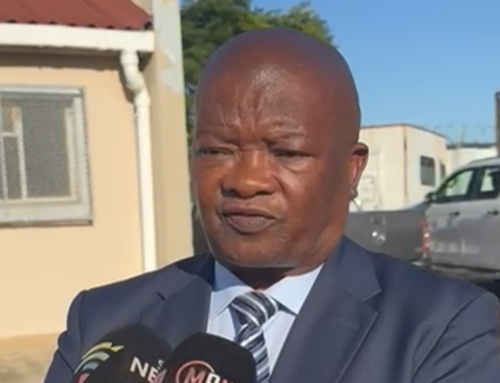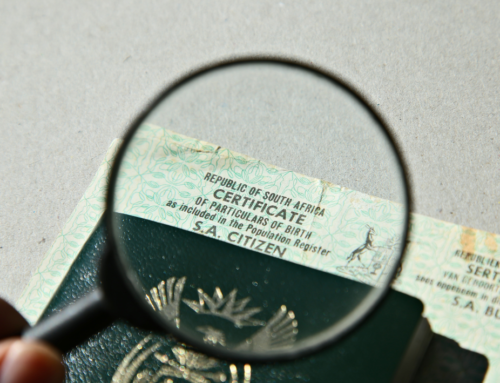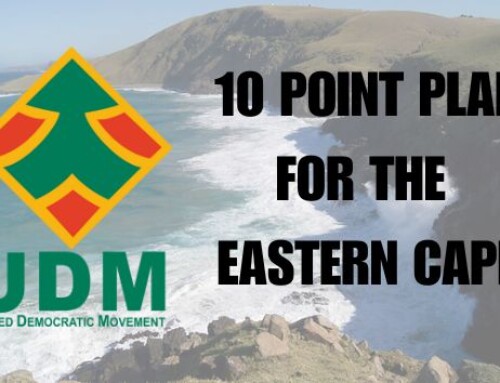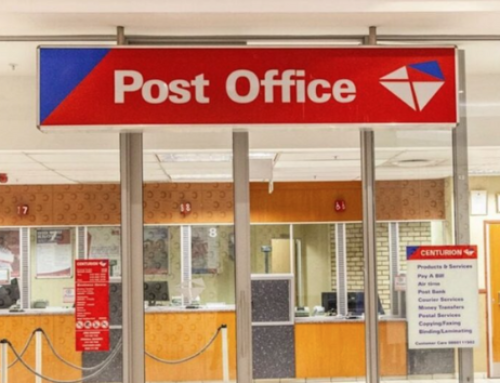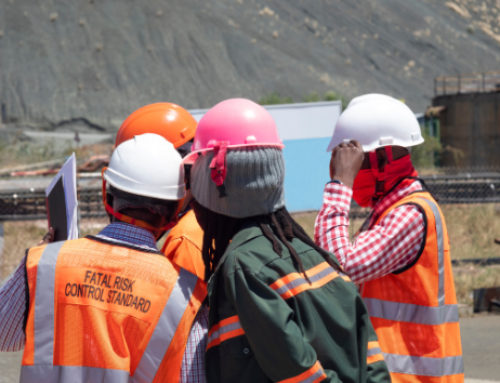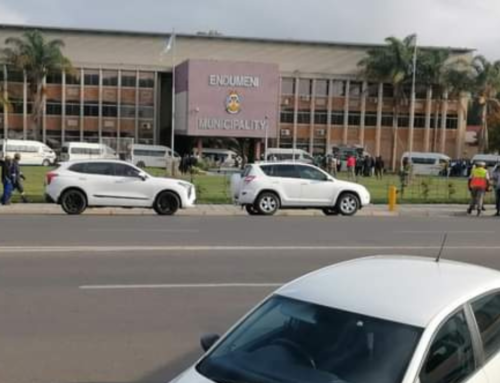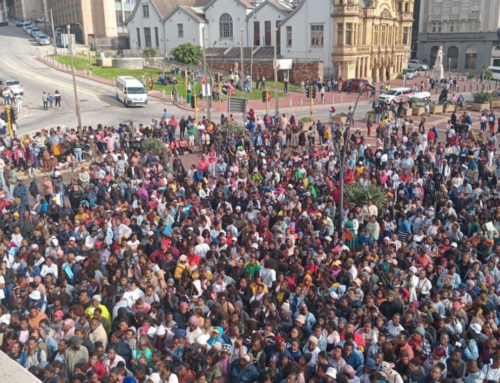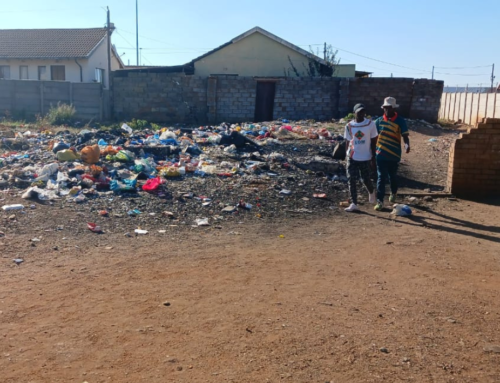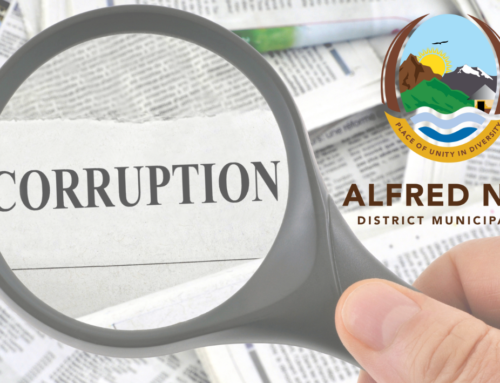• Our hosts today
• Dr Somadoda Fikeni, our moderator
• Those who represent the various departments that sponsored this panel discussion
• My colleagues from other political parties
• Academics and students
• Ladies and gentlemen
Thank you for affording me the opportunity to have a chat with you today.
1. The UDM’s road of success
The United Democratic Movement (UDM) has since its inception batted on the wicket of the ethics of good governance.
In fact, the UDM in part owes its beginning to that principled stance.
My testimony at the Truth and Reconciliation Commission, about corruption in the former Transkei, got me unceremoniously kicked out of the African National Congress, because I refused to recant.
Soon after that, the UDM was born and we have not stopped fighting for what is good and right in this world:
• We opposed the immoral floor-crossing legislation that was eventually scrapped.
• We succeeded in having the Independent Electoral Commission’s former Chief Electoral Officer, Pansy Tlakula, resign because of an irregular lease agreement she organised.
• We were part of the legal action taken to preserve and protect the former Public Protector Thuli Madonsela’s report on state capture.
• The UDM was the catalyst that saw coalitions form after the 2016 elections.
• We did our part in forcing the former president to vacate his office, specifically taking the matter of the secret ballot to the Constitutional Court and organising one of the biggest marches to the Union Buildings.
• The UDM were there with our colleagues from other opposition parties when we asked the Constitutional Court to order parliament to consider the former president’s conduct and whether he is impeachable.
• We have asked President Ramaphosa to intervene in the malfunctioning and corruption-ridden SETAs. Nothing has yet been done about it, but we won’t give up.
• Various communities will attest to the fact that the UDM has intervened on their behalf to have government, at municipal, provincial and national levels, attend to their service delivery complaints.
• Most recently, the UDM exposed alleged corruption at the Public Investment Corporation amounting to billions of rands.
This directly led to the establishment of the Mpati Commission of Inquiry at which I am sure you saw me testify. Once again at our post guarding against corruption.
These are the actions of a party that is opposed to pervasive corruption, maladministration and malfeasance in government.
2. Fighting government corruption
It is a sad reality that South Africans have become jaded when they talk about government corruption. There is too much of it and it’s demoralising our nation.
They only sit up and listen when “things get serious”, as we see with the current commissions of inquiry. Things are indeed very serious with billions of Rands at play.
For the UDM, integrity, commitment and hard work are required from everyone in government, as well as those in the private sector. No quarter shall be given to those who fail.
Rewarding party loyalty is an evil, that should become a thing of the past.
The best quality must be ensured in all appointments, so that merit, responsibility and integrity is guaranteed, and excellence is rewarded.
Specifically, the UDM believes that special courts must be established to investigate and prosecute the corrupt in the public and private sector.
Also, each province must have an independent anti-corruption task team to determine the depth of corruption and to immediately act.
3. Safety and security
For the UDM, the long-term solution to crime and violence lies in our people committing to a concerted effort to reform our society, so that we do not simply address the symptoms, but also the root causes.
Although there are a number of initiatives that the UDM would introduce to bring about safety and security, I wish to highlight two specific strategies for the purpose of today’s discussion.
a) As far as we are concerned, the recruitment processes of the police, defence and intelligence services must be revamped.
The aim of such a programme will be to allow communities to participate in keeping their environments safe and secure.
Individuals who are interested in a career in law enforcement will be trained and assigned to serve their communities. This will allow for the monitoring of crime, the gathering of intelligence and combating lawlessness, whilst also creating much needed jobs.
b) The coordination between the ministries of justice, police services, correctional services, defence and national intelligence must be stepped up.
The UDM proposes that a crime prevention ministry be established to coordinate the work of these departments. Specific objectives and deadlines must be set for the departments to achieve their goals.
4. Free education
• The UDM supports fee-free tertiary education for students from poor and working-class families.
Such an expanded programme can be justified economically as free education is a strategic economic driver, because it is an investment by the state in the creation of a larger tax base in the long run.
However, once implemented under a UDM government, students’ progress shall be monitored and managed as an investment.
• We also think that the National Student Financial Aid Scheme (NFSAS) is a big flop. It is hamstrung by chronic maladministration, corruption and a jobs-for-pals leadership scheme.
In addition, the way in which NSFAS is structured produces graduates who end up mired in debt. Because of our under-performing job market, they will remain indebted with no hope of repaying their loans.
Of course, the biggest challenge at the other end of this education process is making sure that our graduates have jobs.
5. Job creation
The UDM has always said that a massive initiative focussing on job creation through infrastructure maintenance and development is one of the routes to go.
This planned sustainable development project must be driven through the department of public works, in collaboration with all other departments.
Furthermore, the UDM’s response to the challenge of unemployment includes:
• Identifying markets for small firms, through promoting domestic and foreign connections to adequately address both the supply and demand side of the economy.
• Developing capacity in the areas of improved business and entrepreneurial skills.
• Identifying loan and capital sources, as well as facilitating loans and investments in community businesses.
• Investing in sector-based planning and implementation, including the creation of sector-specific banks to provide financial assistance to historically disadvantaged groups and individuals.
6. Xenophobia
Xenophobia in South Africa is not a new thing and, as a matter of fact, it is getting worse by the day.
There are multiple causes of xenophobia, but at the risk of over-simplifying the matter, the UDM is of the view that the root cause lies in the unregulated and unfair competition for the poor’s meagre resources.
The dearth of jobs is, for instance, part of this dynamic and complex situation.
On the one hand, undocumented immigrants are exploited, because they are desperate enough to work for low wages. And, on the other, there are no job opportunities for South Africans that pay a decent wage.
To add to the complexity of the matter we have the issue of undocumented foreigners illegally occupying dwellings.
The owners of such buildings, should be brought to book as they exploit undocumented immigrants and, by default, also deprive South Africans of safe havens.
Like it or not, much of the blame is to be laid at government’s feet as the impact of its inadequate control over the arrival of illegal immigrants, and lack of resettlement mechanisms, are not addressed.
A UDM government will handle illegal immigration in a humane and holistic manner, in line with our continental and international obligations.
We also make a call on undocumented immigrants to come forward and be registered.
Finally, we recognise that legal immigrants contribute immensely to our society and our economy. We are home to, for instance, some of the best educators and academics who impart knowledge and do important research and development.
The UDM believes that xenophobia has no place in our society, but we must also be cognisant of our responsibilities to our own people. It is entirely possible for both these ambitions to work harmoniously.
7. An Economic Indaba with land at the apex of its work
As we worked on establishing a new South Africa, land was placed on the backburner. Political emancipation was our primary goal at that time.
Land, as a tool to achieve economic emancipation and make reparation, should have been addressed straight after liberation.
Matters would look very different if the land issue had been addressed timeously. We certainly would have avoided the destructive tug-and-pull we now witness.
When the National Assembly took a resolution on the expropriation of land without compensation, the UDM voted in favour of this resolution after it was amended.
The UDM certainly did not vote for free-for-all land grabs and evictions.
In this regard, the UDM has long promoted the view that the matter can only be effectively resolved at our proposed Economic Indaba, where all stakeholders can congregate to discuss South Africa’s macro economy, with land at the apex of the debate.
There are a number of pertinent questions that should be answered before we make any rash decisions. Those are, amongst others, the following:
• Who exactly (individuals, companies and/or government) will be affected and how?
• How does food security and economic stability impact implementation i.e. does it prevent expropriation in specific circumstances, and what those would be?
• How will government handle rapid urbanisation and an ever-increasing need to make land available in cities and the concomitant denuding of rural communities and local economies?
• How will traditional leaders and rural communities be affected?
• How will entities such as the Ingonyama Trust be impacted?
8. Closing
With these few words I leave you and invite you to ask me any questions you wish me to answer.
Thank you




